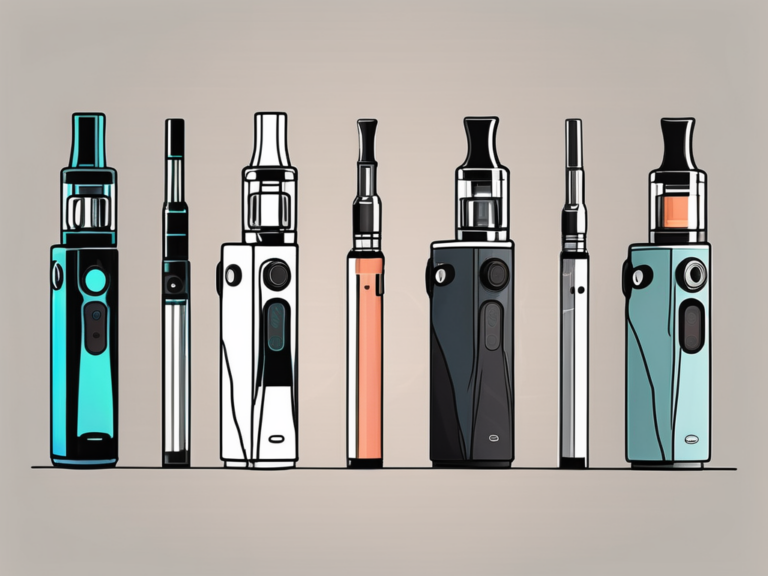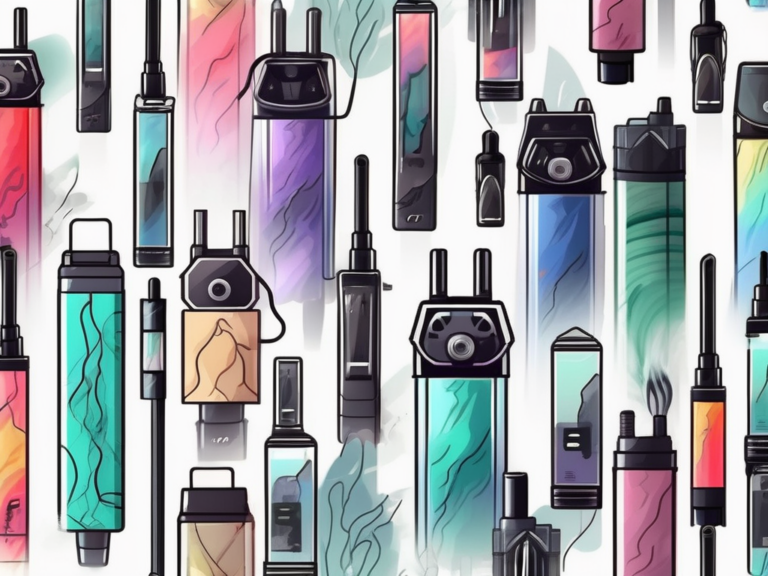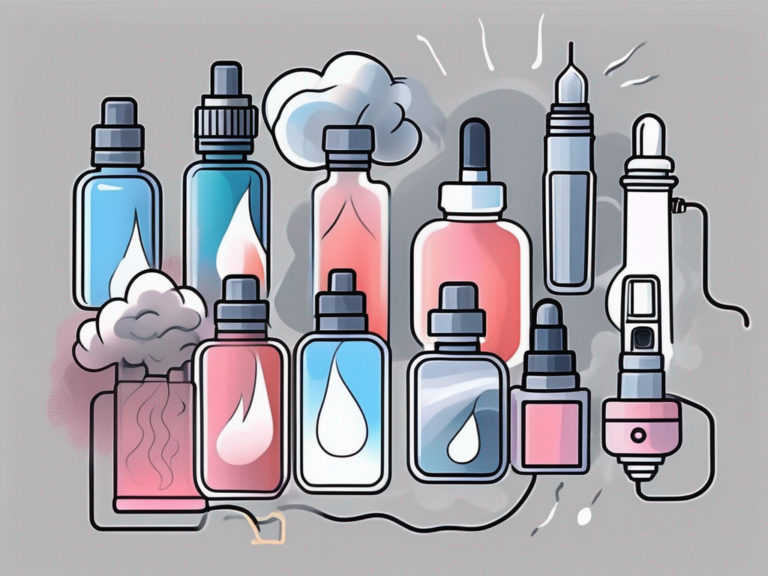when are vapes getting banned
Vaping has become a heated topic of debate in recent years, with concerns about its health risks and social impact. Many people are wondering when vapes will be banned and what the implications of such a ban would be. In this article, we will delve into the controversy surrounding vaping, explore the current legal landscape, discuss the role of government in regulating vaping, analyze the impact of a vaping ban on consumers, and examine the influence of the vaping industry on legislation.
Understanding the Controversy Around Vaping
Vaping, the act of inhaling and exhaling aerosol produced by an e-cigarette or similar device, has gained popularity among adults and young people alike. However, the controversy surrounding vaping stems from the potential health risks associated with it and its impact on social behavior.
The Health Risks Associated with Vaping
There is ongoing concern about the health risks of vaping. While e-cigarettes are often touted as a safer alternative to traditional cigarettes, research has shown that vaping can still have negative effects on respiratory and cardiovascular health. The inhalation of harmful chemicals and the potential long-term consequences are areas of considerable concern.
One of the major concerns is the presence of toxic substances in e-cigarette aerosol. Studies have found that the aerosol produced by e-cigarettes can contain harmful chemicals such as formaldehyde, acrolein, and acetaldehyde, which are known to cause respiratory and cardiovascular problems. These chemicals can irritate the airways and lead to inflammation, potentially increasing the risk of respiratory diseases.
Furthermore, the heating elements in e-cigarettes can release metal particles into the aerosol, which can be inhaled into the lungs. These metal particles, including lead and cadmium, have been linked to lung damage and other health issues. The long-term effects of inhaling these metal particles are still not fully understood, but they raise significant concerns about the safety of vaping.
Additionally, the rise in popularity of vaping among young people has sparked worry about nicotine addiction and its impact on brain development. The potential for young and impressionable individuals to be enticed by the appealing flavors and marketing tactics used by vaping companies is a significant concern.
The Social Impact of Vaping
Beyond health concerns, vaping has also had a notable social impact. The presence of vapor clouds and the odor associated with vaping can be intrusive in public spaces. This has led to conflicts between vapers and nonsmokers, as well as debates about the appropriate places for vaping.
Moreover, the portrayal of vaping in popular culture and social media has contributed to its social impact. Influencers and celebrities often promote vaping, creating a perception of it being trendy and cool. This can influence young people, who are more susceptible to peer pressure, to experiment with vaping. The normalization of vaping has raised concerns about its influence on non-vaping individuals, particularly young people. The concern is that vaping could lead to the normalization of smoking behaviors and potentially serve as a gateway to tobacco products.
Furthermore, the marketing tactics employed by vaping companies have come under scrutiny. The use of appealing flavors, vibrant packaging, and attractive advertising campaigns has been criticized for targeting young individuals and enticing them to try vaping. This has led to debates about the ethical implications of such marketing strategies and the need for stricter regulations to protect vulnerable populations.
The Legal Landscape of Vaping
As vaping continues to gain attention, lawmakers have taken steps to regulate its use. Let’s explore the current state of vaping laws and predictions for future legislation.
Vaping, the act of inhaling and exhaling vapor produced by an electronic cigarette or similar device, has sparked debates worldwide regarding its safety, appeal to youth, and potential health risks. This has prompted governments to closely examine and regulate the industry to ensure public health and safety.
Current Laws and Regulations on Vaping
The legal landscape surrounding vaping varies from country to country and state to state. Some countries have implemented strict regulations, including bans on certain vaping products or flavors. In contrast, others have adopted a more permissive approach, allowing for widespread use.
In the United States, the regulation of vaping is primarily handled at the federal level, with some variations across states and local jurisdictions. The U.S. Food and Drug Administration (FDA) has enacted regulations that restrict the sale and marketing of vaping products to minors, require health warnings on packaging, and require pre-market approval for new products.
Additionally, some states have imposed additional restrictions, such as flavor bans and higher taxes on vaping products, in an effort to curb youth vaping rates and address public health concerns. These state-level regulations add another layer of complexity to the already intricate legal landscape of vaping.
Future Predictions on Vaping Legislation
As the vaping industry continues to grow and evolve, it is expected that legislation will adapt to address emerging concerns. Some experts predict stricter regulations on marketing tactics, flavors, and product packaging, while others foresee a complete ban on certain types of vaping products. The future of vaping legislation remains uncertain but will likely be influenced by ongoing scientific research and public opinion.
Moreover, the rise of new technologies in the vaping industry, such as pod systems and nicotine salts, presents new challenges for regulators in terms of understanding their impact on public health and usage patterns. This technological evolution may prompt lawmakers to revisit and revise existing regulations to keep pace with the rapidly changing landscape of vaping products and trends.
The Role of Government in Vaping Regulation
The regulation of vaping falls within the purview of government bodies, both at the federal and state levels. Let’s examine the stances of the U.S. federal government and state and local governments on vaping regulation.
Federal Government’s Stance on Vaping
The federal government in the United States has demonstrated concern about the rising popularity of vaping and its potential health risks, particularly among young people. The FDA has sought to balance the regulation of vaping products with a recognition of their potential as harm reduction tools for adult smokers. The government continues to review and update its policies as new scientific evidence emerges.
State and Local Government Policies on Vaping
In addition to federal regulations, states and local governments have implemented their own policies to address vaping concerns. Some states have enacted comprehensive bans on flavored e-cigarettes, while others have imposed restrictions on the sale and marketing of vaping products in specific locations, such as schools and public buildings.
The Impact of Vaping Ban on Consumers
If a vaping ban were to be implemented, it would undoubtedly have a significant impact on consumers. Let’s explore how such a ban could affect vape users and what alternatives might arise.
How a Ban Could Affect Vape Users
A ban on vaping would effectively limit access to vaping products, making it more challenging for current vape users to continue their preferred method of nicotine consumption. This could potentially lead to increased use of traditional cigarettes or alternative methods of nicotine delivery.
Furthermore, individuals who have successfully used vaping as a means to quit smoking might find themselves without a viable option for harm reduction. A ban would remove a potential tool in the fight against tobacco-related diseases.
Potential Alternatives for Vape Users
If vaping were to be banned, it is likely that alternative nicotine products would emerge to fill the void. These alternatives could include nicotine patches, gum, or inhalers. However, it is essential to note that the efficacy and potential health risks of these alternatives may differ from vaping, requiring further research and analysis.
The Influence of Vaping Industry on Legislation
The vaping industry, like many other industries, seeks to have a voice in the legislative process. Let’s examine the lobbying efforts of vaping companies and the potential economic implications of a vaping ban.
Lobbying Efforts of Vaping Companies
Vaping companies have actively engaged in lobbying efforts to shape vaping legislation. These companies advocate for regulations that promote harm reduction and access to vaping as an alternative to smoking. They argue that responsible regulation can strike a balance between protecting public health and allowing informed adults to make choices.
Economic Implications of a Vaping Ban
A ban on vaping would have far-reaching economic implications. Vaping products have created a thriving industry, with manufacturers, retailers, and distributors all contributing to job creation and economic growth. A ban could result in job losses and a significant reduction in tax revenue generated by the vaping industry.
While the economic factors must be considered, they should not take precedence over public health and societal welfare concerns. Balancing these interests is essential when making decisions about vaping regulations.
In conclusion, the ban on vapes remains a topic of intense debate. The controversy surrounding vaping stems from concerns about its health risks and social impact. The legal landscape for vaping varies from country to country and state to state, with ongoing discussions and potential future regulations. Government bodies play a crucial role in vaping regulation, with both federal and state governments enacting policies to address vaping concerns. A ban on vaping would have significant consequences for consumers, potentially leading to increased use of traditional cigarettes and a loss of harm reduction options. The vaping industry also influences legislation through lobbying efforts, with economic implications to consider. As the debate continues, it is essential to strike a balance between protecting public health and allowing informed individuals to make choices regarding their nicotine consumption.






